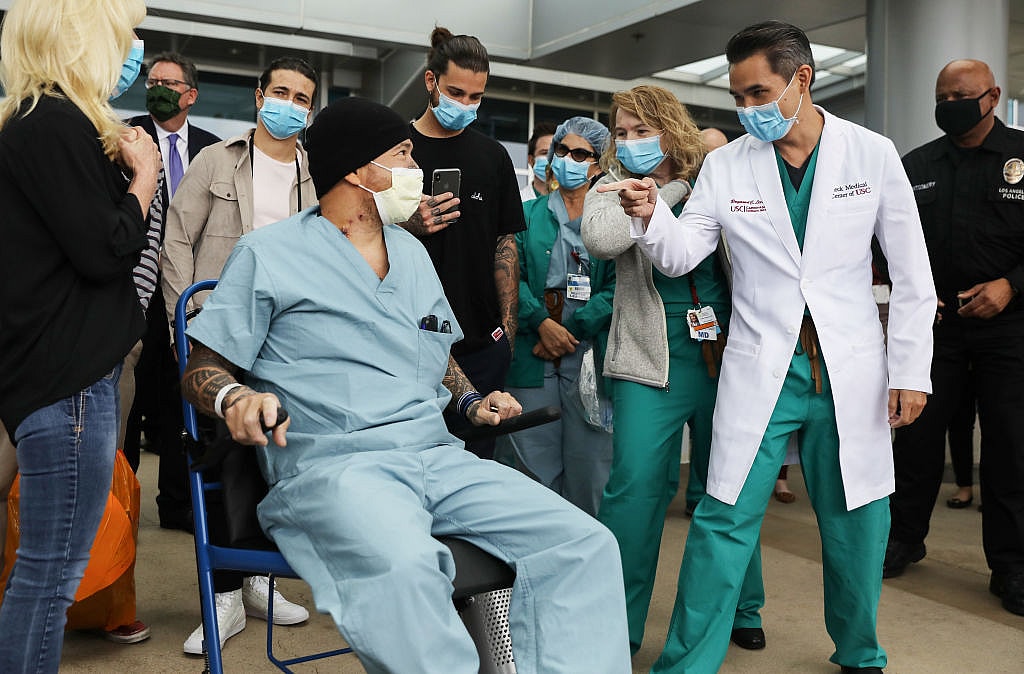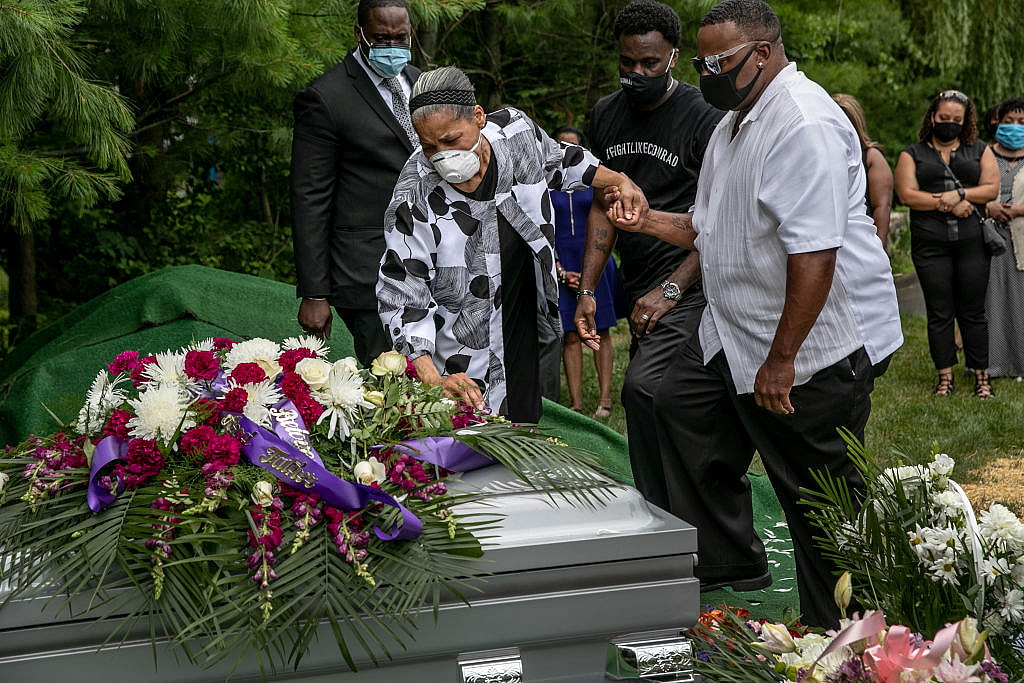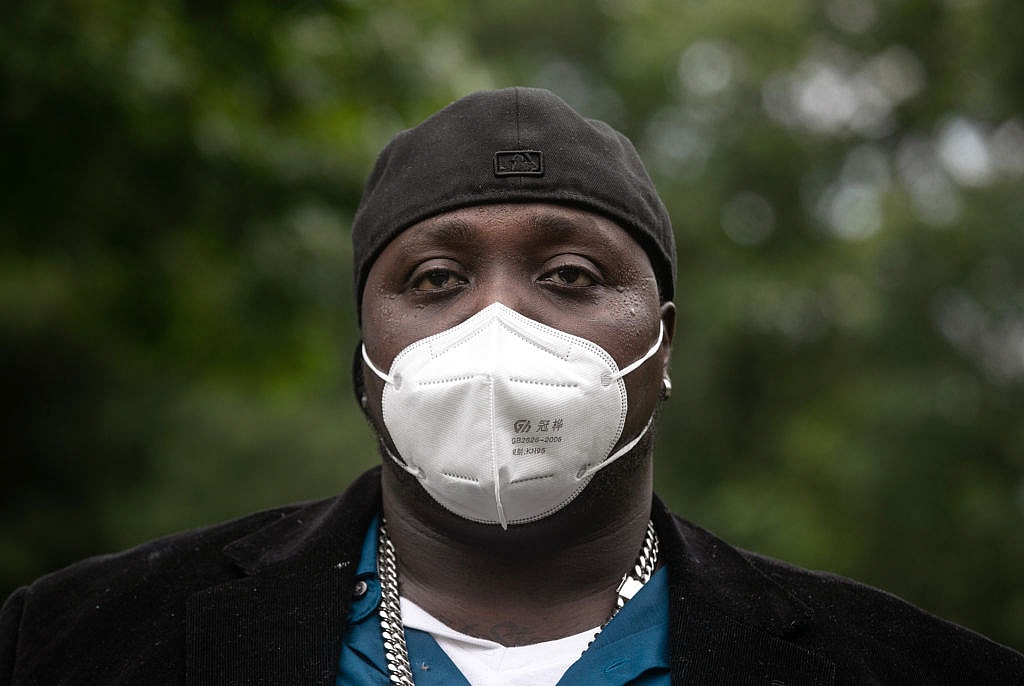For Black America, fears around COVID-19 aren’t just about the disease itself, but seeking help from a medical system that doesn’t always treat Black lives as if they matter.
On Wednesday morning, Sen. Kamala Harris (D-CA) announced a new bill intended to address that inequality, a $200 million anti-racism initiative aimed at medical professionals and health service providers. The COVID-19 Bias and Anti-Racism Training Act aims to not only deter racism in the medical profession, but also create accountability to prove that patients of color are receiving equal care.
“Black folks are not receiving the same kind of treatment that others receive,” Sen. Harris told theGrio in an exclusive interview. “There are biases in every component of this system and it is having real health consequences.
According to the APM Research Lab, Black Americans die from COVID-19 at 2.3 times the rate of white Americans. But for many Black patients, being believed or treated with urgency when they seek care, is a luxury they were not afforded even before COVID-19.
Sociologists have long studied theories of explicit or implicit bias in the medical field, the latter revealing a prejudice against Black patients that some medical professionals aren’t fully aware of.
Read More: Nearly 31% of Black Americans know someone who died of COVID-19

The recent death 26-year-old Sha-Asia Washington in Brooklyn, NY, who was healthy and still died during childbirth, has reignited concerns about Black women’s maternal mortality and overall patient care.
“What we do is we recognize it, we speak the truth about it, and then we deal with it,” Sen. Harris told theGrio. “And deal with it in a number of ways that include also training of health care professionals around their bias.”
Read More: Pregnant YouTuber and influencer Nicole Thea dead at 24
Sen. Harris points to studies that show hard evidence of disparate treatment, such as shorter amounts of time spent with Black patients, or poor bedside manner.
“We need to train physicians and health professionals to recognize when they are condescending to a patient and in particular, a Black patient …it is going to make that person believe that they are not being heard, but also believe that this is not a system they can trust,” she says.
Sen. Harris’ bill would create a $200 million grant program to implement or improve existing anti-racism training at multiple levels of the medical profession, from medical schools to COVID-19 response teams who are in the field testing patients.
Funding will be prioritized for communities experiencing the highest racial disparities, such as those seen in places like New Orleans and Chicago.
Read More: More than 80 percent of COVID-19 patients in Georgia were Black

The bill also would require the Secretary of Health and Human Services to work with local organizations to create evidence-based requirements around anti-racism training, and for the CDC to collect better demographic data as well.
COVID-19’s devastating toll has also claimed the lives of non-Black Latinos, Native Hawaiian, and Pacific Islanders at disproportionate rates as well.
“The coronavirus pandemic has revealed exacerbated existing systemic racism in health care and health outcomes in the US revealing what many of us know: more work must be done in order to achieve a truly equitable society,” said Congresswoman Alma Adams, who co-sponsored the bill with Sen. Harris and will introduce companion legislation in the house.
Sen. Harris’ bill has earned a broad range coalition of support, including the American Hospital Association, National Urban League, the Association of Black Cardiologists, National Hispanic Medical Association, and Black Women’s Health Imperative, amongst other groups.

When asked about her explicit commitment to race-specific policies that benefit Black Americans, Sen. Harris says her policy-making record is clear.
“There are very specific issues that impact Black people in America, which we know have historical context and the history goes back 400 years,” Sen. Harris tells theGrio.
“There are specific issues in terms of the history of slavery, Jim Crow laws, we can go on… systemic legal racism and bias in America that has resulted in specific experiences and disparities and injustice— for— and to— Black people in America.”
Read More: Kamala Harris and Cory Booker call out Rand Paul for stalling anti-lynching legislation
Sen. Harris referenced her anti-lynching bill, co-sponsored with Sen. Cory Booker (D-NJ), her Black maternal mortality bill, and her recent COVID-19 Racial and Ethnic Disparities Task Force Act stating, “I’ve always worked on addressing that and will continue to address that.”
Sen. Harris’ expressed concerns that once a coronavirus vaccine is available, there may be unequal access for communities of color, which only makes tracking race more essential.
“This is a moment in time during the course of these crises that have put under a microscope, what already were these longstanding disparities,” Sen. Harris tells theGrio.
“Thankfully at least some people who we’re unaware are now becoming aware, but the moment really is not to educate people about what we have known our entire lives. It’s about doing something.”
Natasha S. Alford is VP of Digital Content and a senior correspondent for theGrio. Follow her at @natashasalford on Twitter and Instagram.
Have you subscribed to theGrio’s new podcast “Dear Culture”? Download our newest episodes now!

